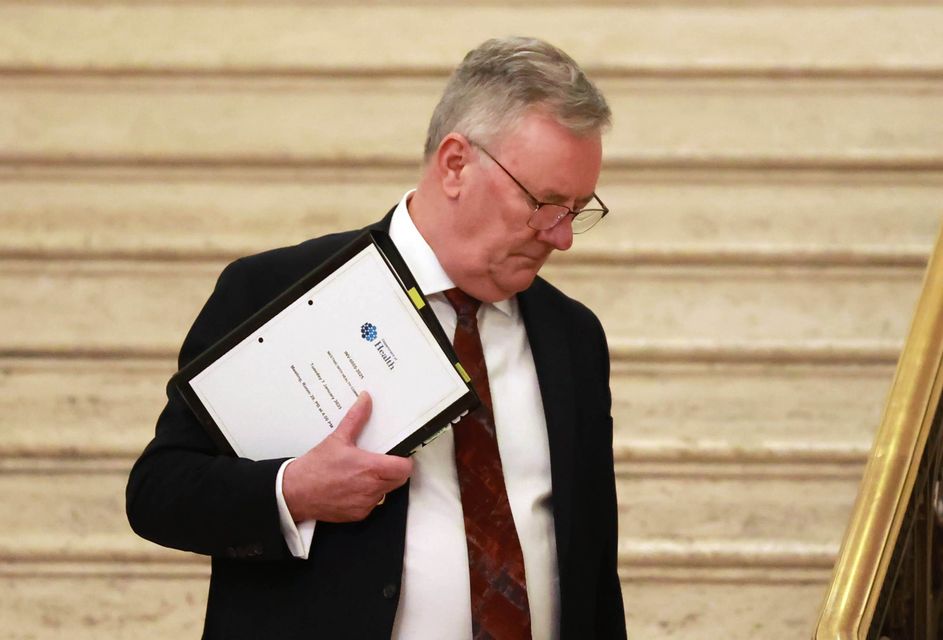The UK Government needs to “step in” to help with a financial crisis facing Northern Ireland’s health service, the chair of a Stormont committee has said.
Health Committee chairwoman Liz Kimmins made the call for assistance after telling MLAs that the powersharing Executive’s budget was “stretched beyond capacity”.
Department of Health officials had told the committee that a draft budget for the next financial year would have consequences for the delivery of health services in the region.
NI Health Minister Mike Nesbitt has repeatedly warned about financial pressures in the health service (Liam McBurney/PA)
Earlier this week, Northern Ireland’s First Minister Michelle O’Neill said the situation facing the health service in Northern Ireland is “dire and diabolical”.
Ms O’Neill expressed concern at the scenes witnessed both inside and outside emergency departments in recent weeks, with patients facing long waits in the back of ambulances because of capacity issues.
Health Minister Mike Nesbitt said on Wednesday a draft budget agreed by the Executive consigned health to “more of the same” over the next year.
Brigitte Worth, the department’s finance director, updated the committee on financial pressures within the current financial year and the draft budget for 2025/26.
She said it was unlikely additional funding from the January monitoring round would be enough to close a £35 million funding shortfall in the current year.
But she said an additional £10 million would enable the department to pay health service staff 11 months of backpay.
Mr Nesbitt has previously conceded he does not currently have the funds needed to deliver a 5.5% pay increase for staff for 2024/25 but has committed to paying at least 10 months’ worth of the uplift retrospectively in March, with a further pledge to secure the additional money needed to bridge the gap to make the full award.
Turning to the 2025/26 draft budget, Ms Worth said the resource allocation to health included an additional £200 million of funding.
She said: “This budget doesn’t provide us with the investment which would be needed to make the kind of difference to our services that we’d all like to see.
“Our level of funding relative to England is now at a 10-year low.
“At 1.5%, it is significantly below the 4-7% that was estimated by the Fiscal Council as being required to meet our additional needs.
“We need to be realistic about what can be delivered within the envelope we have been given.”
She added: “If we accept that more funding for health can’t be prioritised over the allocations given to other departments, we also have to accept the consequences that has for the delivery of our health and social care services.”
Preeta Miller, director of infrastructure investment at the department, updated MLAs on pressures on the capital budget.
She said: “Without additional investment, it is inevitable the estate will continue to deteriorate while the pace at which we can deliver the new estate facilities that we require will have to be slowed down to fit within our budget allocation.”
Ms Kimmins responded: “The point about our funding position being at a 10-year low in comparison to England really reinforces the point that we need Westminster to step in.
“I think the minister has said about the need for the increased overall funding. I am hoping the minister will be making that case.”
Ms Kimmins said the budget across the whole of the Executive was “stretched beyond capacity” and health had “got as much as possible”.
She said hopes that there may have been some additional funding returned from other areas had not materialised as “all departments are to the wire”.
